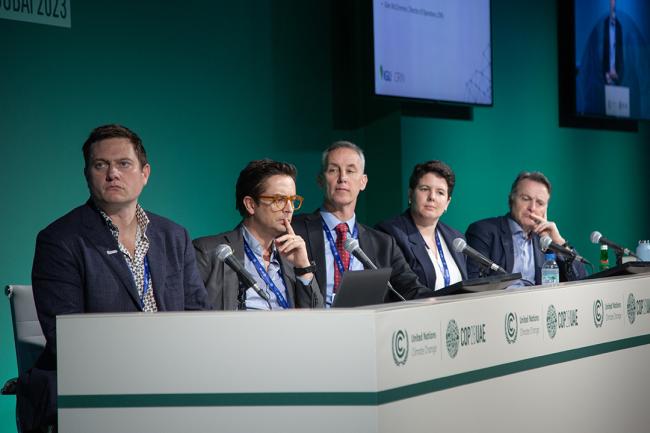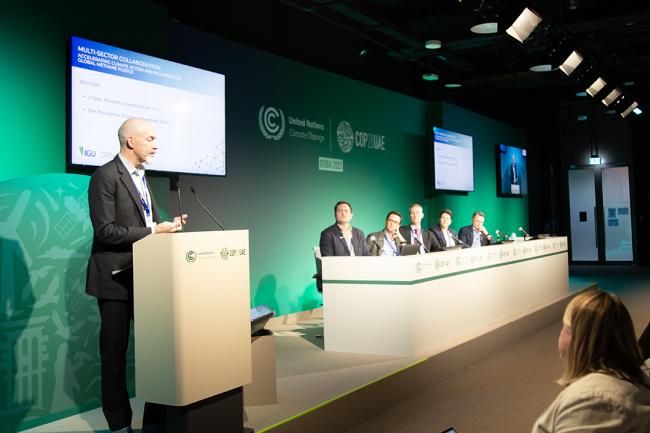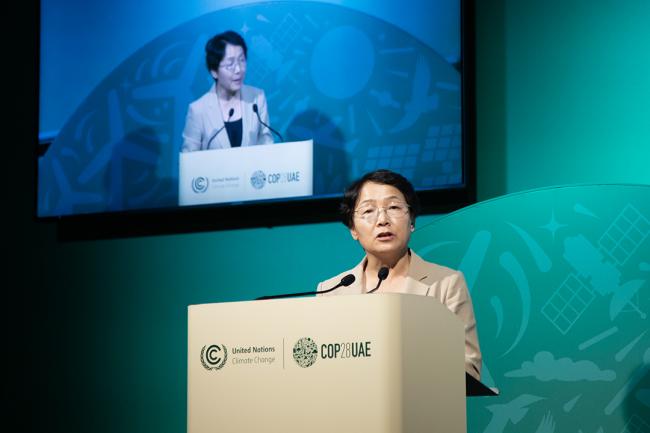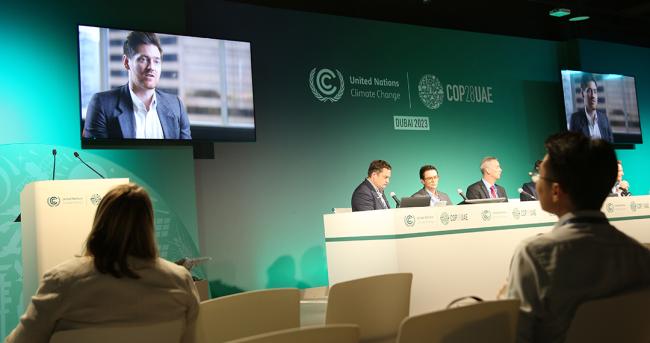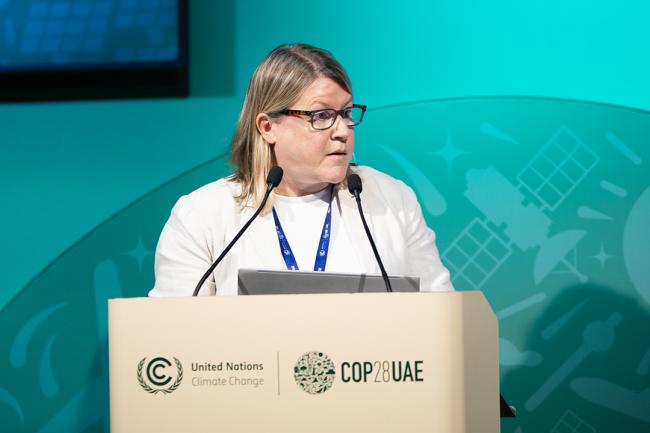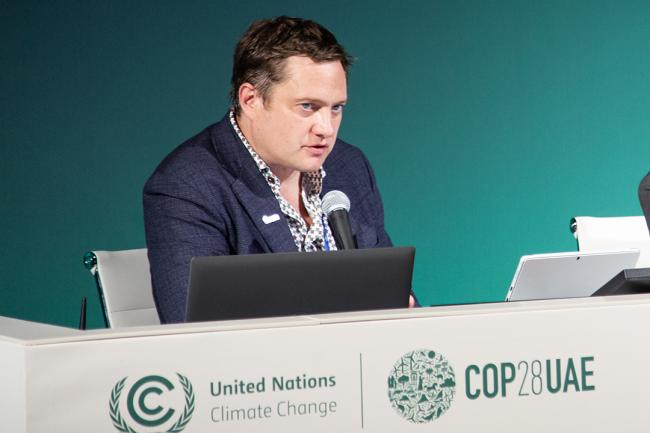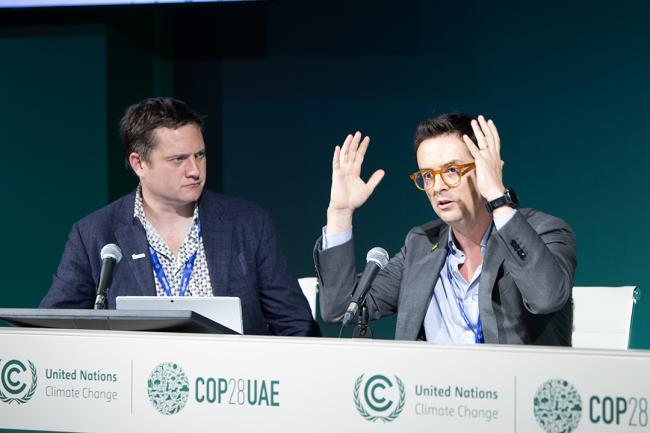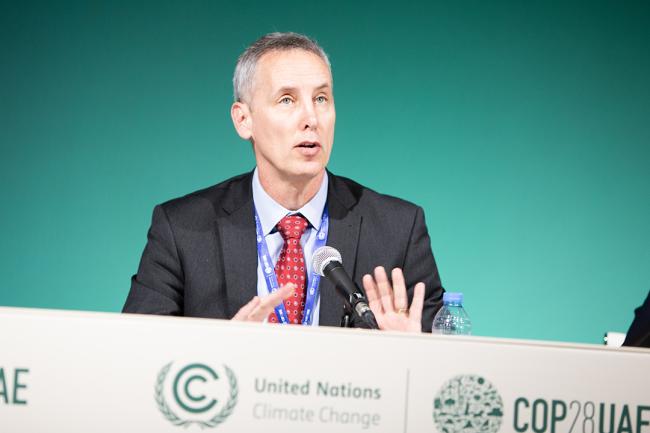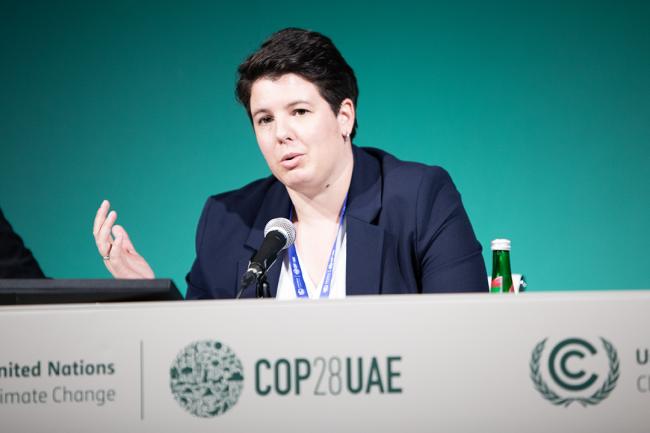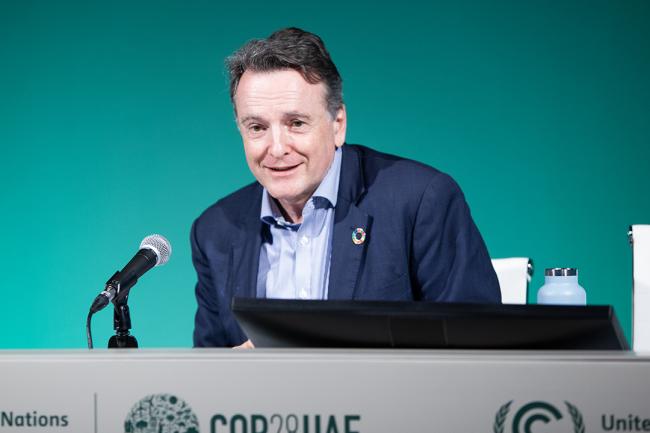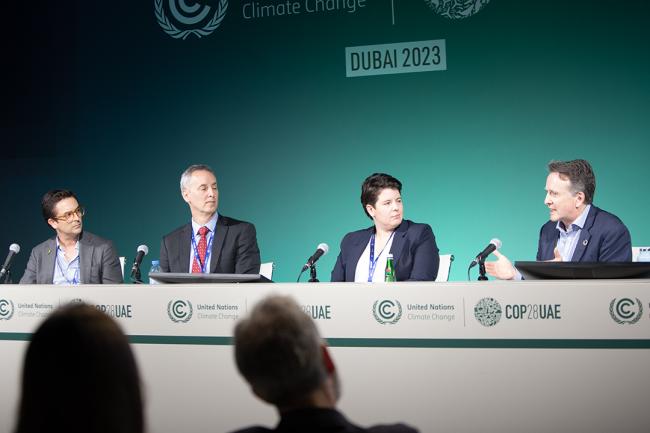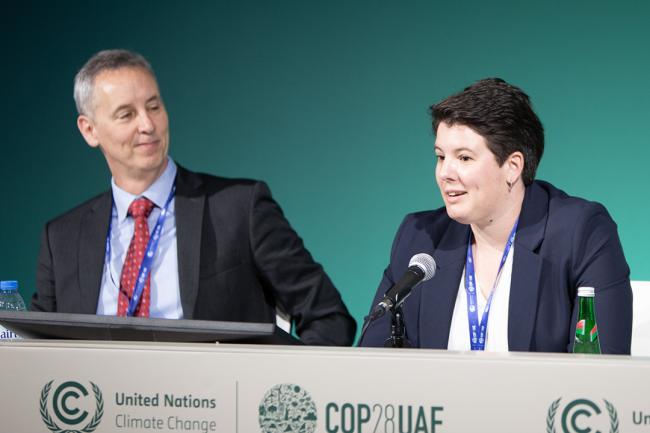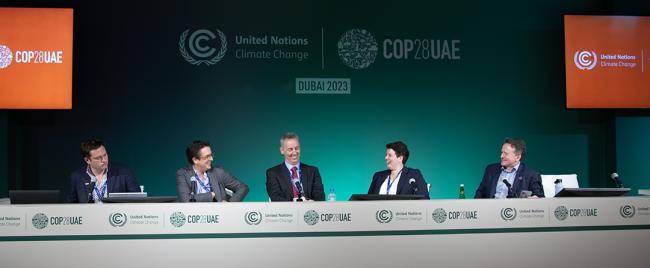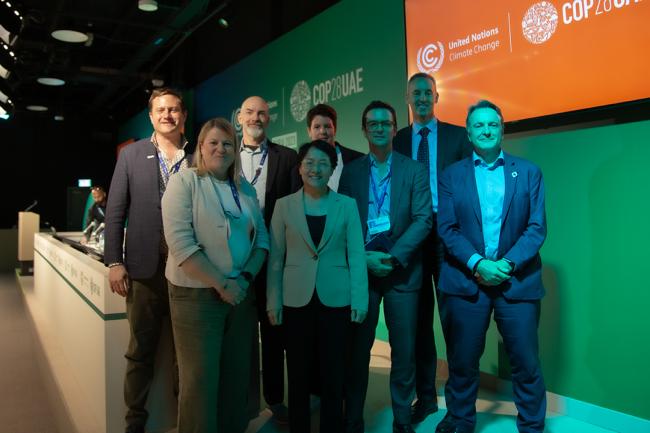About
The need for significant cuts in methane emissions requires technological innovations and collaboration across sectors. At this event, oil and gas industry leaders and financial experts discussed new commitments to reining in this contributor to climate change.
Multi-sector Collaboration: Accelerating Climate Action and Delivering the Global Methane Pledge
The urgent need to reduce methane emissions, which are major contributors to climate change, has spurred pledges to take action from governments and national and international oil companies (NOCs and IOCs), including the Global Methane Pledge, announced at COP 26, and the new Oil and Gas Decarbonization Charter (OGDC). This event, organized by the International Gas Union (IGU), focused on how collaboration across sectors can deliver the financing, policies, and innovative technologies needed to make significant methane emission reductions by 2030 and approach net-zero emissions by 2050.
Li Yalan, President, IGU, opened the event by emphasizing that while the gas industry is part of the problem, it also is part of the solution to climate change, as the innovations pursued by the industry can detect and reduce methane emissions. Glen McCrimmon, Clean Resource Innovations Network (CRIN), stressed the crucial role that multi-sector collaboration, which is the core of CRIN’s mission, can play in pulling together the finance, technologies, and talent required for clean energy solutions.
Lesley Coldham, IGU, introduced the panel discussion by emphasizing that the gas industry has the greatest potential for achieving rapid and low-cost emission reductions, noting the increasing deployment of drones, sensors, robots, and methane oxidation catalysts to capture methane emissions.
Moderator Kevin Krausert, CEO, Avatar Innovations, opened the panel, which included industry leaders and financial experts, with a recorded video featuring Aaron Foyer, ARC Energy Research Institute, who spoke about the potential to scale up technology to achieve significant reductions in methane emissions.
Santiago Martínez Ochoa, Ecopetrol, highlighted the NOC’s participation in the recently announced OGDC. The charter, announced on 2 December and signed by 50 companies, sets out several goals: align around net-zero by or before 2050; zero-out methane emissions; eliminate routine flaring by 2030; and continue working towards industry best practices in emission reductions. Martínez reported Ecopetrol’s success in reducing methane flares and in identifying and recovering methane emissions, and said the charter sets a “north star” and standard that will help push for methane reductions.
Matt Kolesar, ExxonMobil, stressed that methane reductions can be tackled immediately, noting improvements in remote sensing of methane emissions, and publicly available data in real time.
Ulrike Schopp, Ipieca, welcomed the increased focus on methane emissions at COP 28, and noted that the oil and gas industry is working on operational improvements, new technologies, and improving the reporting and measurement of methane. She emphasized that delivering on the charter will resonate well with stakeholders and bolster trust in the industry. She noted that Ipieca is not involved in lobbying activities, but rather wants to bring back from COP 28 a sense of urgency that will resonate with the association’s members.
John O’Brien, Deloitte & Touche LLP, noted that he looks at reducing environmental damage from a financial perspective, working with companies to set targets and work out the most strategic ways to achieve those targets. He underscored that pledges and commitments force action, saying that since these commitment statements go into annual corporate reports, “you [companies] are going to have to live up to that.”
On the topic of how to prioritize different actions, Martínez Ochoa emphasized the importance of looking at cost abatement, which helps bring actions forward in time. He noted the need to determine the right mix of technologies, to which Kolesar added, can involve difficult choices, as technologies are evolving so quickly. Kolesar underscored the “explosion” of new technological options in North America pointing out that many are startups in the area of methane detection, and need to be scaled up. Schopp emphasized the importance of dialogue among companies, which can lead to improvements for all, even among competitors. “Every company will be measured against the worst performing member of the sector,” she noted.
O’Brien stressed that supply chains will demand transparency regarding methane emissions and open sourcing of transition plans, arguing that scaling up technologies is important and that it makes no sense to wait for perfection when there is good enough technology to put action in motion. O’Brien also emphasized new collaborations in terms of financing, such as philanthropic sources partnering with public and private sources of funding.
Panelists agreed on the need for both carrots and sticks: the carrot of money to be made by reducing methane, as well as the stick of regulations that “set the standard,” as Kolesar noted. He pointed to the “clever” Inflation Reduction Act in the US, which imposes a tax on methane but also removes that tax if certain conditions are met, characterizing the approach as “I’ll quit hitting you if you behave.” O’Brien said regulation can provide a backstop and keep pushing it forward, “and if you play it wrong, there’s lots of money to be lost.” He noted it is key for companies to strategize around different future scenarios “to make sure your company survives through transition.”
Organizers: International Gas Union and Clean Resource Innovation Network
Contact: Lesley Coldham | Lesley.Coldham@igu.org
For more information: https://www.igu.org/
To receive free coverage of global environmental events delivered to your inbox, subscribe to the ENB Update newsletter.
All ENB photos are free to use with attribution. For this COP 28 side event, please use: Photo by IISD/ENB | Angeles Estrada Vigil

